Search Images
Browse Content (p. 1653)
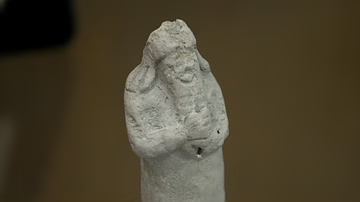
Image
A priest from Assyria
This terracotta statuette depicts a standing man who has a long hair and beard. Both of his hands are clenched; the right one is on the left. He seems as if he is holding something within this hands. From Mesopotamia, Iraq. Neo-Assyrian period...
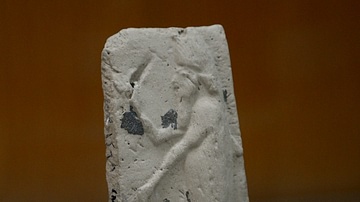
Image
Apkallu plaque
This terracotta plaque depicts an Apkallu. The figure is standing and wears a fish cloak. His right hand is raised and holds a cone while the left hand holds a bucket. Neo-Assyrian period, 911-609 BCE. From Mesopotamia, Iraq. The Sulaymaniyah...
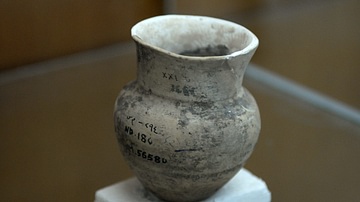
Image
Pottery from Nimrud
This pottery was found in the city of Nimrud (the Assyrian capital), northern Mesopotamia, Iraq. Note the writings and acquisition numbers on it. Neo-Assyrian period, 911-609 BCE. From Mesopotamia, Iraq. The Sulaymaniyah Museum, Iraq.
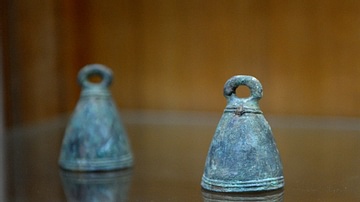
Image
Assyrian Bells
These two bells were found in northern Mesopotamia. Neo-Assyrian period, 911-609 BCE. From Mesopotamia, Iraq. (The Sulaymaniyah Museum, Iraq)
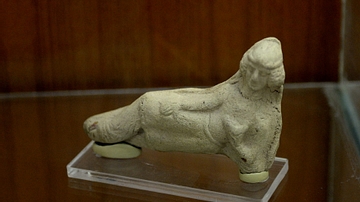
Image
Hellenistic Woman
This terracotta statuette depicts a woman. The woman is recumbent but she is not naked. She looks forward, as if she is talking to someone or looking at something. She put her right arm on her right thigh but she holds something with her...
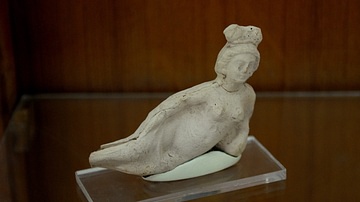
Image
Woman from the Hellenistic Period
This terracotta statuette depicts a woman. The woman is recumbent and is naked and wears an elaborate headdress. She looks forward, as if she is talking to someone or looking at something. From Mesopotamia, Iraq. The Hellenistic period, 334-139...

Image
Aegeus Consults the Oracle at Delphi
Themis and Aegeus. Attic red-figure kylix, from Vulci, 440-430 BCE.
Antikensammlung, Altes Museum, Berlin, Germany.

Image
Medea Kills Her Son
Medea killing one of her sons, side A from a Campanian (Capouan) red-figure neck-amphora, from Cumae, c. 330 BCE.
Louvre, Paris.
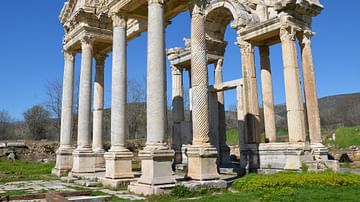
Image
The Tetrapylon of Aphrodisias
The Tetrapylon of Aphrodisias in Caria (now Turkey) was a monumental gateway leading from the main north-south street of the town into a large forecourt in front of the Temple of Aphrodite. It was built c. 200 CE.
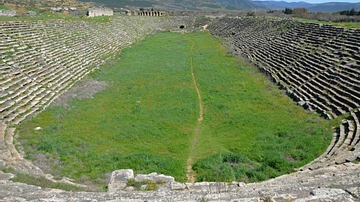
Image
The Stadium of Aphrodisias
The Stadium is one of Aphrodisias' most remarkable surviving buildings. It was 270 m long and 59 m wide with 30 rows of seats. It had the capacity of 30,000 spectators. It is one of the best preserved ancient stadiums and also one of the...